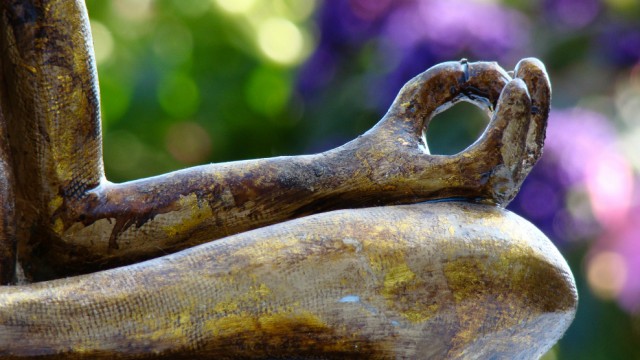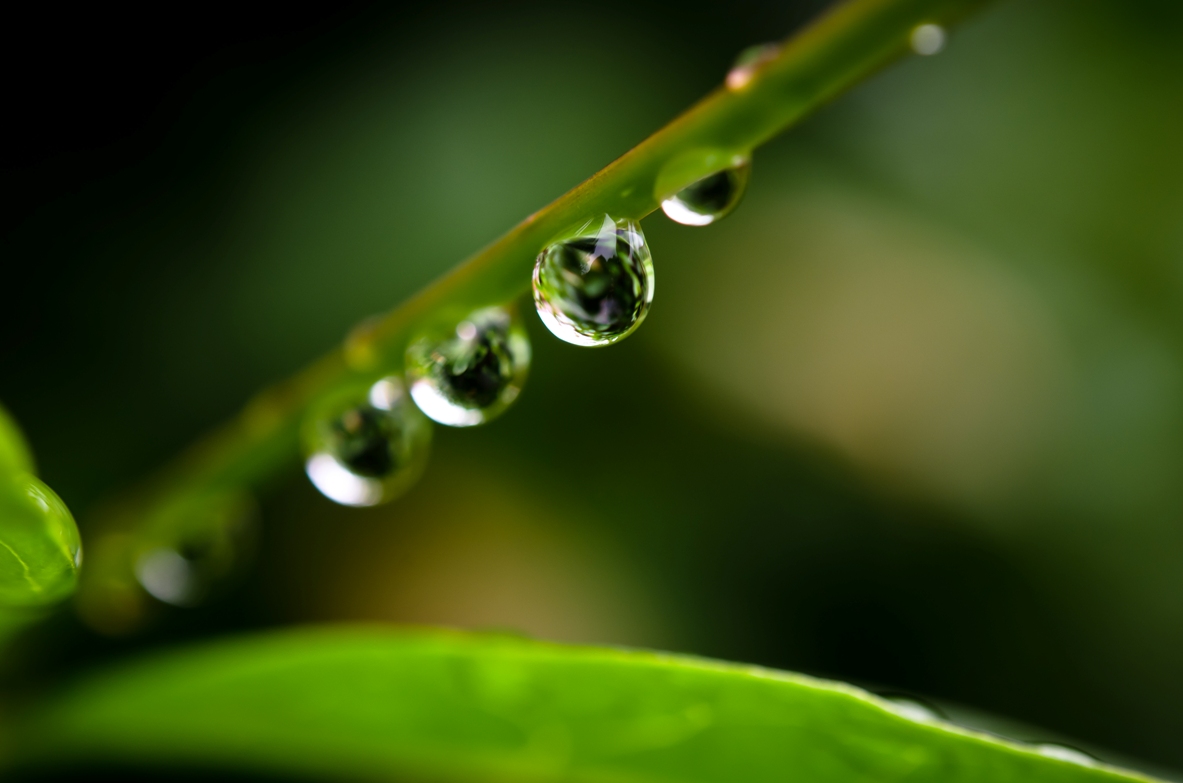It’s summer in northern California. People cross the iron footbridge on bikes or foot on a hazy, warm Sunday afternoon. I sit about 75 meters upstream from the bridge, and though I’m in the open, few passersby see me from the pedestrian park road across the stream. The few that pass by on the path directly in front are friendly.
 The water ripples with washboard effect in this section of the stream, masking most of the noises from the vehicles on a road adjacent to the park. Occasionally an especially loud car or truck, or the dark, throbbing bass of a boom box, penetrates the stillness, but the noise does not disturb, much less disrupt the inclusive awareness of meditation.
The water ripples with washboard effect in this section of the stream, masking most of the noises from the vehicles on a road adjacent to the park. Occasionally an especially loud car or truck, or the dark, throbbing bass of a boom box, penetrates the stillness, but the noise does not disturb, much less disrupt the inclusive awareness of meditation.
I look up to see a female mallard less than five meters downstream. She is lingering warily along the bank, treading the gentle current. I can feel her awareness of me, and don’t move. She inches closer in the next few minutes and comes quite close. Suddenly she bursts into the air with such explosiveness that some drops fall on my skin.
It’s a paradox, but doing nothing—simply intensely and undividedly observing everything that is happening outwardly and inwardly—is the highest action of which a human being is capable. Also counter intuitively, initiating the movement of negation and dissolving the habits of mind, patterns of thought and attachments of emotion, is the way to spiritually advance. It’s also the essential action for health of the mind and body.
For the body to operate optimally, it has to empty out accretions. The same principle applies to the brain, since mental accumulation is not just a matter of ‘information overload,’ but absorbing toxic content of which one is largely unaware.
The process of being fully aware of emotional and mental accretions, of allowing thoughts and feelings to flow forth without judgment or interference and be observed attentively, releases poisons from the mind and body. That’s the meaning of negation in meditation.
Unless we’re in a meditative state of awareness, our brains automatically record experiences. So experience leaves a residue of which we are not entirely aware. For example, we’ve all had experiences where we think we’re having a good conversation with a group of people, but someone makes a cutting remark, perhaps unintentionally, which ‘sticks in our craw.’ We don’t realize it until later, when we feel angry but aren’t sure exactly why.
There are three approaches to such things. One can, as most people do, push the offending remark away and push on, telling ourselves ‘it’s nothing and it doesn’t bother me.’ In this way, one becomes oblivious to what is going on within one, and becomes the kind of person that made the thoughtless remark.
The second approach is to analyze one’s delayed reactions and try to intellectually understand them, and thereby control one’s emotions. This ‘top down’ method also results in suppression, while strengthening the calculating mind.
A third approach is to allow the space and time to simply observe the stream of one’s consciousness without trying to alter its flow. Right observation is the first and most important factor, and by simply observing one’s mental and emotional life with effortless intensity, thoughts and feelings are dislodged and dissolved in attention. This is how to ‘de-tox the brain.’
Does the mind have to store experiences, which become ingrained in the emotional centers in the brain, eventually preventing seeing and feeling anything anew? Not if one knows how to observe the movement within, allowing memory and emotion to spontaneously unfold, tell their story, and end.
Clearly, that’s a healthy way to live, permitting us to remain young in mind and heart. It simply requires an understanding of right observation, which is completely undivided and unwilled, and taking the time every day to sit and passively and energetically watch the movie of the mind.
Then why is it so difficult, and rare? Is it that most people subconsciously believe they must conform and adapt to the culture, even when it has expired and is malignant?
Or is it that most people, especially in hyper-individualized societies, are not aware of the culture—the sea in which we all swim? Are they like the fish who turns to the awakening fish and says, ‘what water?’ Indeed, Americans are so individualistic most don’t even see the culture, except as separate from them. So they’re absorbed and become undifferentiated from it, while still believing there is just ‘me.’
Many animals at the top of the food chain—otters, seals, birds, dolphins, and whales—have been washing up dead on the Pacific coast. Scientists think the immediate cause of is toxic algae growth and pollution. Of course, the warming of the oceans, over-fishing, environmental stress, etc. are also factors, all of which are caused by man.
This disturbing phenomenon is both a metaphor and physical manifestation of the cumulative effects of the buildup of poisons generated by human consciousness. Pollution begins within, and must first be ended within.
By regularly initiating the movement of negation, destructive accumulations are released, and no longer build up to toxic levels within us. Then our minds and hearts, not to mention the earth itself, will heal themselves.
Martin LeFevre

